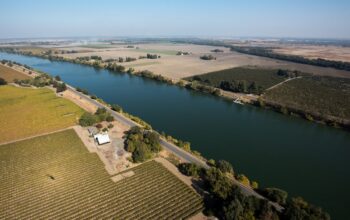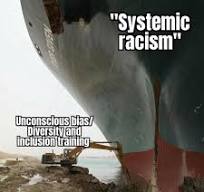Chevron has spent millions’ on studies, reports and legal fees, for the right to do business in the Monterey area. In the end it is the consumer that pays for it—and we pay twice. Once for the company to defend its constitutional rights—and as taxpayers for government trying to kill the economy and make the cost of energy and gas skyrocket. We are the losers of this radical takeover of government.
““If a local regulation conflicts with a state law, the local regulation exceeds the local entity’s power,” wrote Justice Franklin Elia on behalf of the unanimous panel in the Sixth Appellate District of the California Court of Appeals.
The judgment effectively dooms Measure Z, which was passed in 2016 with 56% of Monterey County voters approving of the ballot measure. The policy sought to ban fracking, a method of oil and gas extraction where liquid is injected into the substrate of the earth to create enough pressure to withdraw fossil fuels from the rock layers.
The smarter thing for Chevron is to close all its California facilities and stop selling in California—and get the other oil companies to leave the State. Watch as California collapses as oil and other businesses leave the State.
California appellate court overturns fracking ban in Monterey

A California state appellate court awarded a victory to Chevron and other oil companies, saying a ban on fracking in Monterey County exceeded the local jurisdiction’s authority.
Matthew Renda, Courthousenews, 10/12/21
(CN) — A California appeals court ruled Tuesday that a Monterey County measure banning oil and gas extraction was preempted by state law, meaning oil and gas companies can continue fracking in the region.
“If a local regulation conflicts with a state law, the local regulation exceeds the local entity’s power,” wrote Justice Franklin Elia on behalf of the unanimous panel in the Sixth Appellate District of the California Court of Appeals.
The judgment effectively dooms Measure Z, which was passed in 2016 with 56% of Monterey County voters approving of the ballot measure. The policy sought to ban fracking, a method of oil and gas extraction where liquid is injected into the substrate of the earth to create enough pressure to withdraw fossil fuels from the rock layers.
The method of extraction has proved controversial around the United States, but took on an added dimension in Monterey County due to the local drought. Protect Monterey County, the organization that appealed a trial court’s earlier decision to revoke Measure Z due to preemption, said it was necessary to protect the county’s water supply, which is diminished in part due to new regulations that limit the region’s ability to take surface water from the Carmel River.
Paula Getzelman, a vineyard owner who helped found Protect Monterey County, said fracking endangered the two most important industries that also depend on water — agriculture and tourism.
“We would like protections for agriculture, tourism and the health and well-being of our residents,” she told Monterey County Weekly in 2016. “If we weren’t able to get those from state regulatory agencies and our board of supervisors, we felt the people deserve to have the opportunity to deal with it at the voter level.”
The appellate court made it clear that Protect Monterey County will have to take their argument against fracking to Sacramento, where the oil industry and its extraction methods are regulated by the state legislature.
Local entities have the right to pass land use and zoning laws that regulate or restrict certain commercial activities, including oil and gas extraction, but it has no power to regulate the manner in which the oil is extracted, due to preemption rules, the court said.
“The fact that state law leaves room for some local regulation of oil drilling, such as zoning regulations identifying where oil drilling will be permitted in a locality, does not mean that the county has the authority to ban all new wells and all wastewater injection under Measure Z,” Elia wrote.
After the measure passed, Chevron, which is the largest oil extraction operator on the San Ardo Field, sued with another plaintiff, Aera Energy.
San Ardo Field is located in south Monterey County, about 30 miles north of Paso Robles and 20 miles south of King City.
The San Ardo Field was discovered in 1947. It is the 13th largest oil field in California and the 46th largest in the United States. The oil is “heavy” and has the consistency of ketchup, but steam injections heat the oil, making for easier extraction.
ADVERTISEMENT
Chevron is the largest operator on the site, producing about 11,000 barrels of oil per day. An oil well at the San Ardo Field typically draws about 10 to 20 times as much water as oil, and in 2006 Chevron built a reverse osmosis facility to purify 45,000 barrels of water a day.
About 75 percent of the water is sent to recharge basins, where it slowly drains back into the aquifer through a series of constructed wetlands. The remaining water is concentrated brine and is pumped deep underground.
Not all entities were in favor of the fracking ban, including the San Ardo Union Elementary School District, which collects proceeds from the oil extracted in the region and uses it to supplement its budget.
“There’s a lot of poverty in the area,” superintendent Catherine Reimer told Courthouse News in 2016 when the lawsuit was filed.
For now, opponents of Measure Z will not have to worry about its implementation in the near term.



